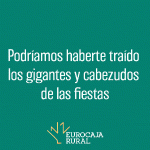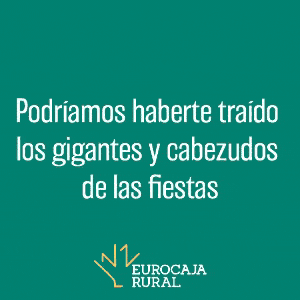






The Spanish Society of Medical Oncology (SEOM) has called for taking into account the psychosocial needs of long-term cancer survivors in Spain, beyond the physical consequences. Currently, the number of long-term survivors in Spain stands at two million people, a figure that is expected to increase due to increasingly early diagnosis and the arrival of new treatments.
Precisely, the medical society has prepared a consensus document to improve the care of these patients throughout life and value their different needs. This document, collected in the form of a scientific article, will be published in the coming weeks in the journal ‘Clinical and Translational Oncology’, as detailed during the seminar ‘Healing and caring in Oncology’, organized by SEOM and MSD, and which took place this Friday at the Almagro parador.

The coordinator of the SEOM Group of Long Survivors in Spain, Ruth Vera, has detailed that the first step of the consensus has been to move towards “a new definition” of the long survivor, supported by different European and American medical societies.
Although until a few years ago the concept exclusively covered those who were in complete remission of the disease for more than five years, SEOM and other European scientific societies are committed to a broader delimitation: “A person is considered a long survivor from the moment they “Cancer is diagnosed until the end of life,” Vera detailed. “This encompasses many characteristics, absolutely different patients,” she detailed.

Thus, in this study, which is expected to be published in the coming weeks, SEOM divides the survival period into different phases depending on the person’s own needs.
“A patient at the time of diagnosis and treatment – the acute phase – has nothing to do with the transition phase, already with the disease controlled, or the extended phase, when the patient may or may not be on treatment,” he said. Vera.

The last phase is the permanent one, when the patient no longer has the disease, although “it is possible to oscillate between one and another” and they do not always happen “sequentially.” “Cancer is becoming a chronic disease, and perhaps the most important disease at European level,” she said.
On the other hand, the document also addresses the patient’s needs and distinguishes a total of five: physical -such as pain, fatigue, insomnia, lack of concentration-; psychological, since 20 percent of patients who have suffered cancer have depression or anxiety; social, which include job reintegration or social isolation; detection of relapses or second tumors; and prevention and specific follow-up, because those who have had cancer have a greater cardiovascular and metabolic risk.

«In Spain we have had a system very focused on the specialist doctor, and we have focused a lot on the physical area or the detection of relapses. But everything else hasn’t been addressed as much. For this reason, in the document we have proposed a much more multi-stage and interdisciplinary approach,” explained Vera.
SEOM advocates reaching a follow-up that brings together Primary Care (PC) and specialized care. «AP has a fundamental role because there will be patients with a higher risk of cardiovascular and other types of chronic diseases. On the other hand, there are risks of other types of tumors. And the psychological and social sphere must also be included,” she said.

Thus, he clarified that “it will not be the same model for everyone”, since “it must be individualized according to the type of cancer.” “However, we can establish a framework and then detect the most frequent physical and psychological problems in each tumor,” he specified, adding that, for this, measurement is “very important” to “find solutions.”
For her part, Dr. Rosario Vidal, medical oncologist at the Salamanca University Care Complex, has pointed out that the approach “from many points of view”, that is, “interdisciplinary”, is “essential” in these patients.

In this sense, Dr. Yolanda Ginés, member of the Cancer Working Group of the Spanish Society of Family and Community Medicine (semFYC), has called for the humanization of these patients. «The long survivor is still a person who at one point in his life has a process, but he is still a person who, when he enters the system, continues to be part of the continuous care that is provided from different areas, so Working in coordination should be the basis of care,” he stressed.
“The long survivor is a person with special characteristics, but they have other pathologies or vital situations that will require attention, so we should see them in 360 degrees, and the PA is in a privileged position to do so,” he added.

Vidal is committed to multidisciplinary PC and specialized care being “shared management” and sequential depending on the phases of the disease, with good communication as a “base.” In addition, the doctor also supports the creation of the figure of the ‘liaison oncologist’ for the coordination and organization of the shared management model.
In this sense, Ginés has regretted the lack of direct connection between PC doctors and oncologists. «I don’t know the oncologists I have had to work with. Unless a specific person requires something specific, we don’t know each other, we don’t know who is on the other side of the boarding,” he said. In this sense, he has also highlighted that in some Autonomous Communities, such as Madrid, the patient can only be referred to the specialist who is in charge of the specific organ that has the tumor, but not to the oncologist.
Likewise, the family doctor has valued the role of her profession as a coordinating agent between social agents and the Administration so that they can be involved in the monitoring of patients.
For his part, Dr. Alejandro Pérez-Fidalgo, medical oncologist at the University Clinical Hospital of Valencia and researcher at Incliva, has focused on the needs of the long-term survivor who is diagnosed in adolescence or at a young age, since “there is a gap “in the health system in this sense.”
«The needs of a person diagnosed at 15 years old are very different from other age ranges. At 18, integration into the social sphere occurs, then entry into sexual life. Specific psychological needs are going to be greatly affected by a diagnosis in childhood and adolescence,” she noted. Thus, she explained that, in these patients, parents take an overprotective role, which makes it difficult for their children to become independent.
In his opinion, three questions are necessary to address the long survivor. «First of all, sit down and talk; “a change in mentality, and being more open to interspecialist coordination and, finally, more resources,” he demanded.
Finally, Clara Rosàs, manager of the Federació Catalana Entitats contra el Càncer (FECEC) and representative of the Association of European Cancer Leagues, explained that for the labor reintegration of long-term survivors, it is necessary to observe “the possible consequences in the short and medium treatment period, the need for work agreements that allow flexibility in returning to work, or the stigma and prejudice associated with the disease.
Finally, the president of SEOM, César A. Rodríguez, has pointed out that the oncological forgetfulness, approved by the Government a year ago, “needs development” because, due to how it is written, “it is subject to multiple interpretations.”

